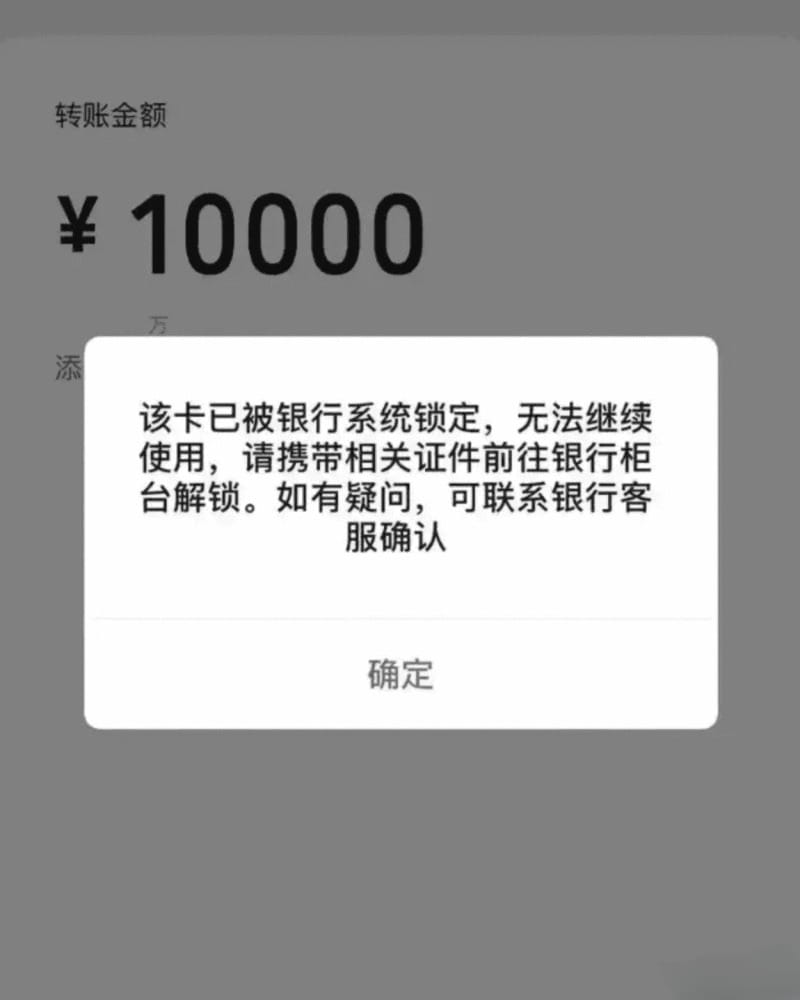The money just transferred from the platform to the bank card, the 'successful transfer' notification hadn't finished displaying, when suddenly the bank app popped up a freezing notice – at that moment, my heart sank as if it were being held tightly, all the calm I'd accumulated over 8 years of OTC trading shattered.
I later realized that too many people, like me, fell into the 'invisible minefield': Clearly following all the rules during the transfer, why am I still targeted after two months? The pitfalls in this industry are all hidden in the details you ignore. Today, I will reveal life-saving experiences in detail:
I. Why 'there was no problem at the time, but later it exploded'?
The key lies in the deep hiding of the capital chain. The money you received may have just been scammed from the victim's account in earlier transactions. When the victim reports to the police, they trace the flow, and your step may be marked as a 'subject for verification.' But don’t be afraid, freezing ≠ illegal; as long as you can prove you were unaware, in most cases, you can get it unblocked, though the process is frustrating.
II. 5 'high-risk actions' targeted by risk control.
Changing the receiving card frequently or suddenly logging in from a different location.
Directly write 'buying currency' or 'USDT' in the remarks, which is equivalent to submitting a report to the bank.
Transfer the money away as soon as it arrives, making the flow appear as clean as if it were deliberately laundered.
The payer's real name does not match your receiving account name (e.g., receiving money from a stranger using a family member's card).
Making large transactions at two or three in the morning, unusual operations during non-working hours are the most noticeable.
III. Upon receiving a freezing notice, do these 3 things immediately.
First, distinguish between true and false: Banks and police will never ask you to transfer money to a 'safe account,' nor will they ask for your password; if either of these two requirements comes up, it is 100% a scam.
Refund through official procedures: must be public-to-public refunds, remember to request receipts and case closure certificates; private-to-private refunds may be hard to explain.
Gather the evidence chain: Organize transaction records, chat records, and bank statements in chronological order; the more detailed, the easier it is to prove your innocence.
IV. 4 possible outcomes after freezing.
Most fortunate: evidence is solid, directly unblocked within 24-72 hours.
Most common: account temporarily controlled, automatically restored in 1-3 months (do not engage in sensitive operations during this period).
A bit troublesome: The money involved in fraud has been frozen, but other balances can be used normally.
The most frustrating: Listed on a long-term risk control list, it's advisable to get a new card specifically for OTC and not touch the old card anymore.
V. 6 habits that can reduce freezing risks by 90%.
Only trade on major platforms, selecting older users with long verification times to take orders.
The receiving card name must match yours; do not use a family member's card to 'collect' funds.
Split large transactions into smaller ones, avoid operations between 2-5 AM (the risk control system is most sensitive at this time).
Write 'shopping money' or 'daily expenses' in the remarks, do not touch any words related to withdrawals.
Get a dedicated receiving card, only for incoming funds (wait 3 days before transferring after it arrives, do not move it the same day).
Absolutely do not help others collect or transfer money, even if it's a friend; if there are issues with the funds, you may become an 'accomplice.'
This industry is deep, but understanding the rules can help you survive. I have accumulated a wealth of practical experience from the pitfalls I've faced and the mines I've avoided over the past 8 years. If you're also doing OTC and are afraid of pitfalls and freezing, consider following me – later I will gradually discuss details such as 'how to communicate with the police for unfreezing' and 'how to choose a bank for a dedicated card.'
After all, in this industry, staying alive is more important than making quick money; understanding how to avoid pitfalls will help you go further. Have you faced similar pitfalls? Let's chat in the comments, and I can give you some tips.#加密市场回调 #山寨季何时到来?

